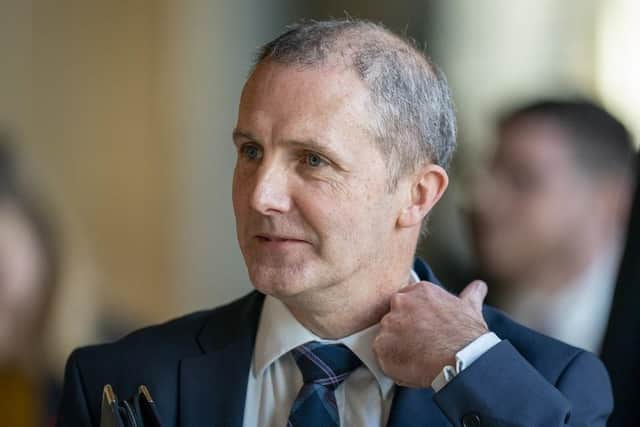How to save a reputation - Kirsteen MacDonald
The five-figure charges, racked up on the Scottish Health Secretary’s iPad during a family holiday to Morocco in December 2022, came to light last month. When initially asked by Holyrood officials about the bill, Mr Matheson claimed it was due to his sim card being out of date and no longer in contract, but he insisted it was a legitimate parliamentary expense which should be paid out of the public purse.
It was then agreed that £3,000 of the data bill would be classified as ‘office costs’, while the remainder would be covered as an expense through central Scottish Parliament funds. However, following pressure from opposition politicians and further press scrutiny on the matter, Mr Matheson then agreed to pay back the charges personally. This was followed by a statement he gave in the Scottish Parliament admitting the excessive bill was the result of his sons streaming Scottish football matches during their North African holiday.
Advertisement
Hide AdAdvertisement
Hide AdWhile at time of writing he has managed to keep his job, the Health Minister now faces an investigation from the Scottish Parliament Corporate Body with growing calls from opposition politicians for him to resign.


We cannot second guess the outcome of the investigation, but what can be said is that the very serious damage to Mr Matheson’s reputation could have been avoided with decisive and transparent actions from the outset. Instead, he finds himself in the midst of a full-blown media crisis with the likelihood that there is still much more to come on this story.
In any crisis situation it is so important to get to the heart of the matter from the onset to prevent lasting reputational damage. It’s vital to quickly establish all the facts and to then be open and transparent on the actions that will be taken to address the matter.
The Health Minister’s initial comments appeared to be an attempt to avoid taking personal responsibility with no initial offer to personally cover the excessive data bill. Had he been more forthcoming about this unfortunate incident, it is highly unlikely that his ministerial position would have come under threat. While most people could empathise with his intention to keep his teenage sons out of the media spotlight, his actions had precisely the opposite effect.
We all make mistakes but when you operate in the public spotlight it is essential that these are carefully managed from the onset. The public are generally quite forgiving, even when a politician makes a mistake, provided there is a swift acceptance of responsibility and an effort to make amends for it. Indeed, taking a transparent approach when handling a crisis can often enhance an individual’s reputation in the longer term.
If the public perceive an attempt to cover up a mistake, particularly one such as this involving taxpayers’ money, it will typically stir up wider anger and can often enable a crisis to grow in stature.
In my work supporting clients who are facing a crisis situation, the first piece of advice I offer is that you cannot cover up bad news. It’s always better to face this head on as it will enable you to better control the narrative.
Sadly for the Health Minister, his colleagues, and those nearest and dearest to him, he failed to do this and is now living with the consequences of a media crisis which currently shows no signs of abating.
Kirsteen MacDonald, founder and director of Mac Media Law